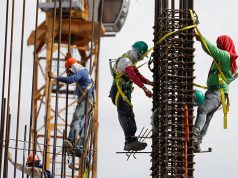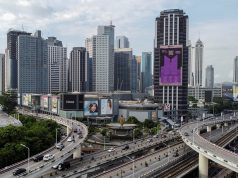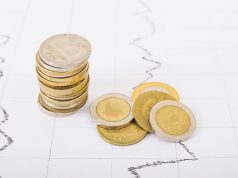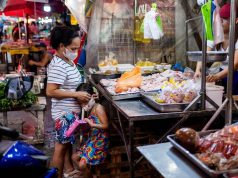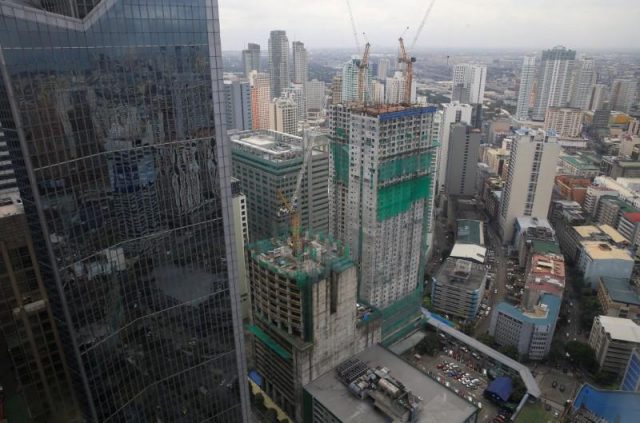
MANILA – Investor confidence remains fairly intact more than a year into the administration of President Rodrigo R. Duterte, as policy uncertainty has dissipated on the economic front despite persistent political noise, an analyst at S&P Global Ratings said Wednesday.
Andrew Wood, associate director at S&P for sovereign and international public finance ratings, said investor worries about the Philippines have generally eased as far as fiscal policies are concerned, although risks remain due to the bloody war on narcotics and ongoing martial law in Mindanao.
“The Duterte administration has shown itself to be in favor of sound and orthodox fiscal and monetary economic policy making across the board by generally keeping what worked for the Aquino administration and bringing it over,” Mr. Wood said in a webcast.
“In that sense, I think political risks has somewhat declined over the past year, but of course we are still keeping an eye on the social aspects of the President’s agenda,” he added.
“The President has strong focus on improving law and order which has allegedly resulted in numerous instances of extra-judicial killings since he came to power. In our view, there remains some policy uncertainties with regard to Mr. Duterte’s social agenda in particular. This is also true in terms of the application of martial law in Mindanao.”
Thousands of people have been killed — some under dubious circumstances — since Mr. Duterte took office at end-June 2016 from legitimate police operations and by suspected vigilantes as his government adopted a mailed-fist policy against narcotics peddlers and users.
“Nevertheless, we don’t see these policies have undermined the economic momentum in the Philippines or investor sentiment at this stage,” Mr. Wood said.
S&P still expects the Philippine economy to grow by 6.5% this year, which if realized would hit the low end of the government’s 6.5-7.5% growth goal and cement the country’s position as one of the fastest-growing economies in Asia.
Congressional approval and enactment of the first package of the tax reform agenda will serve as a litmus test for the Duterte administration — a measure long-awaited by investors as it is expected to improve the ease of doing business in the Philippines while trimming costs.
Mr. Wood noted that Mr. Duterte’s “pretty strong support” in Congress has been instrumental in ensuring legislative action on tax reform.
Despite concern among Mr. Duterte’s economic managers over how much support this measure has in Congress, the Senate Ways and Means committee yesterday approved Senate Bill No. 1592 (read story on S1/11), which reduces personal income tax rates and offsets the expected foregone revenues with higher excise tax rates on fuel and cars, an excise tax rate on sugar-sweetened drinks, and reduced value-added tax (VAT) exemptions. It also simplifies the estate and donor’s taxes — providing a uniform six percent rate — in a bid to encourage compliance and plug billions of pesos in leaks from these systems.
SB 1592 has a few differences from House Bill No. 5636 — particularly in the tax on sugar-sweetened drinks, the phased implementation of higher tax rates on oil products, and VAT base expansion — which itself secured final-reading approval at the House of Representatives at the end of May.
The fresh revenue stream will fund the state’s P8.44-trillion spending plan under the “Build, Build, Build” initiative until 2022 when the current administration ends its six-year term.
At the same time, Mr. Wood said approval of tax reform — for which there will be up to five tranches — will not automatically bag for the Philippines a credit rating upgrade from S&P, as the debt watcher would have to evaluate its long-term impact on the country’s fiscal position.
“What we need to see is more structural and a little bit more long-term in nature. We need to see this infrastructure spending translating into significantly higher real GDP growth on a consistent basis for a few years,” the analyst said.
“That [tax reform] factor alone is probably unlikely to bring the rating upward, but [it will exert] significant upward pressure on the rating in the future.”
The Philippines currently holds a “BBB” rating — one notch above minimum investment grade — with a “stable” outlook from S&P.




